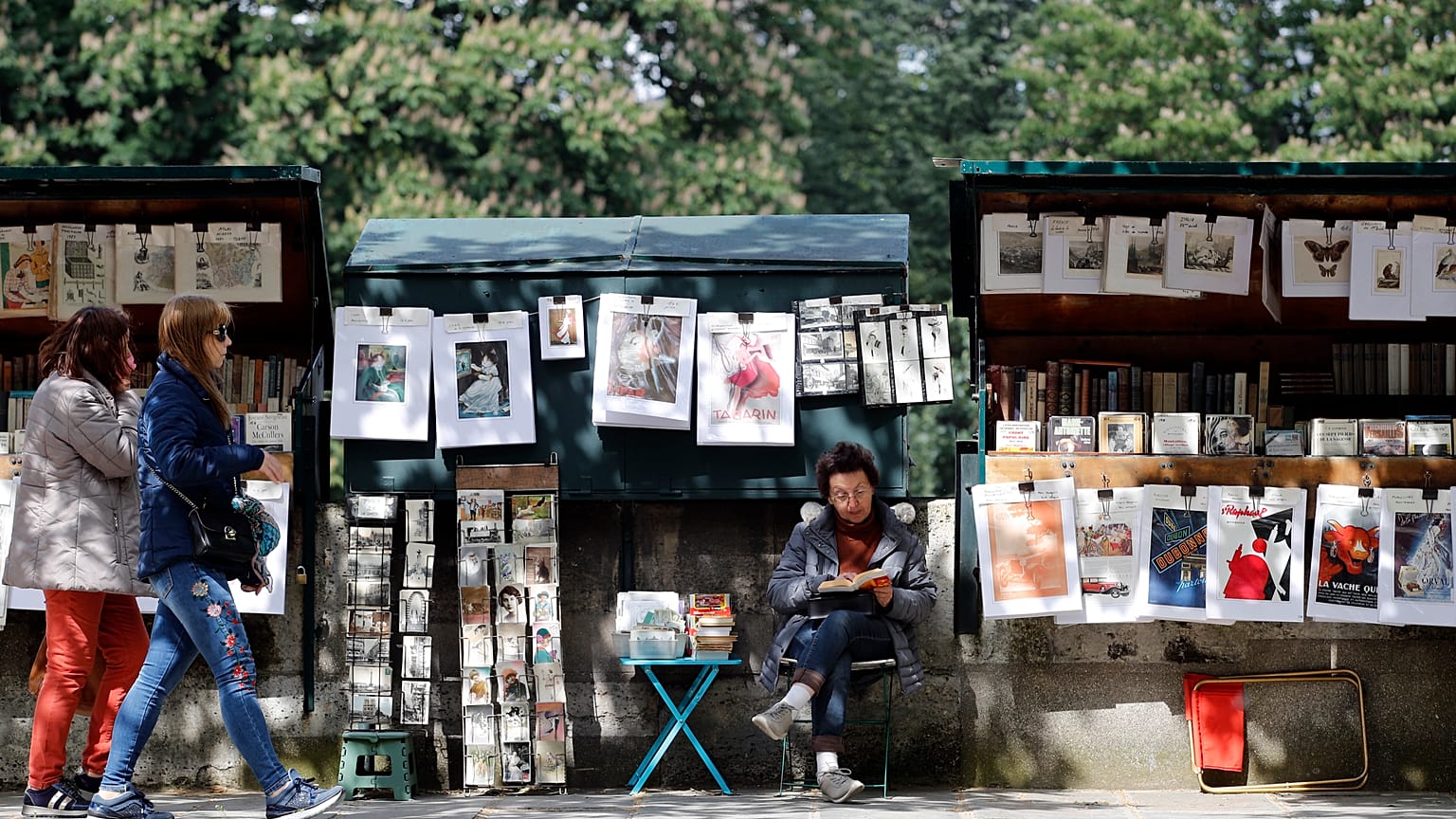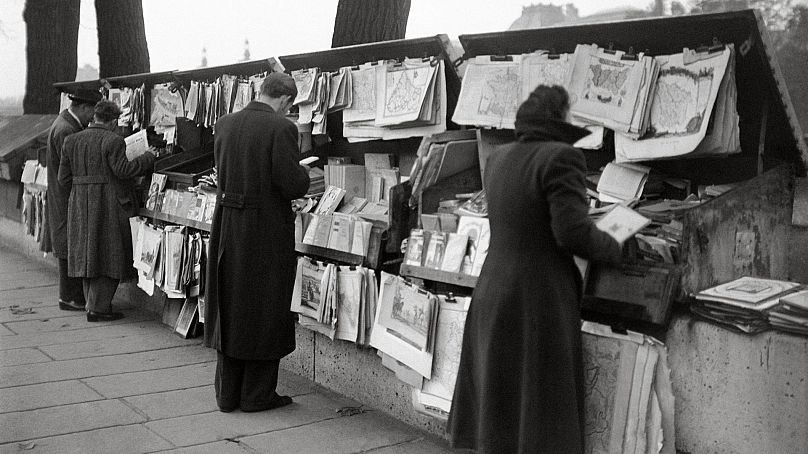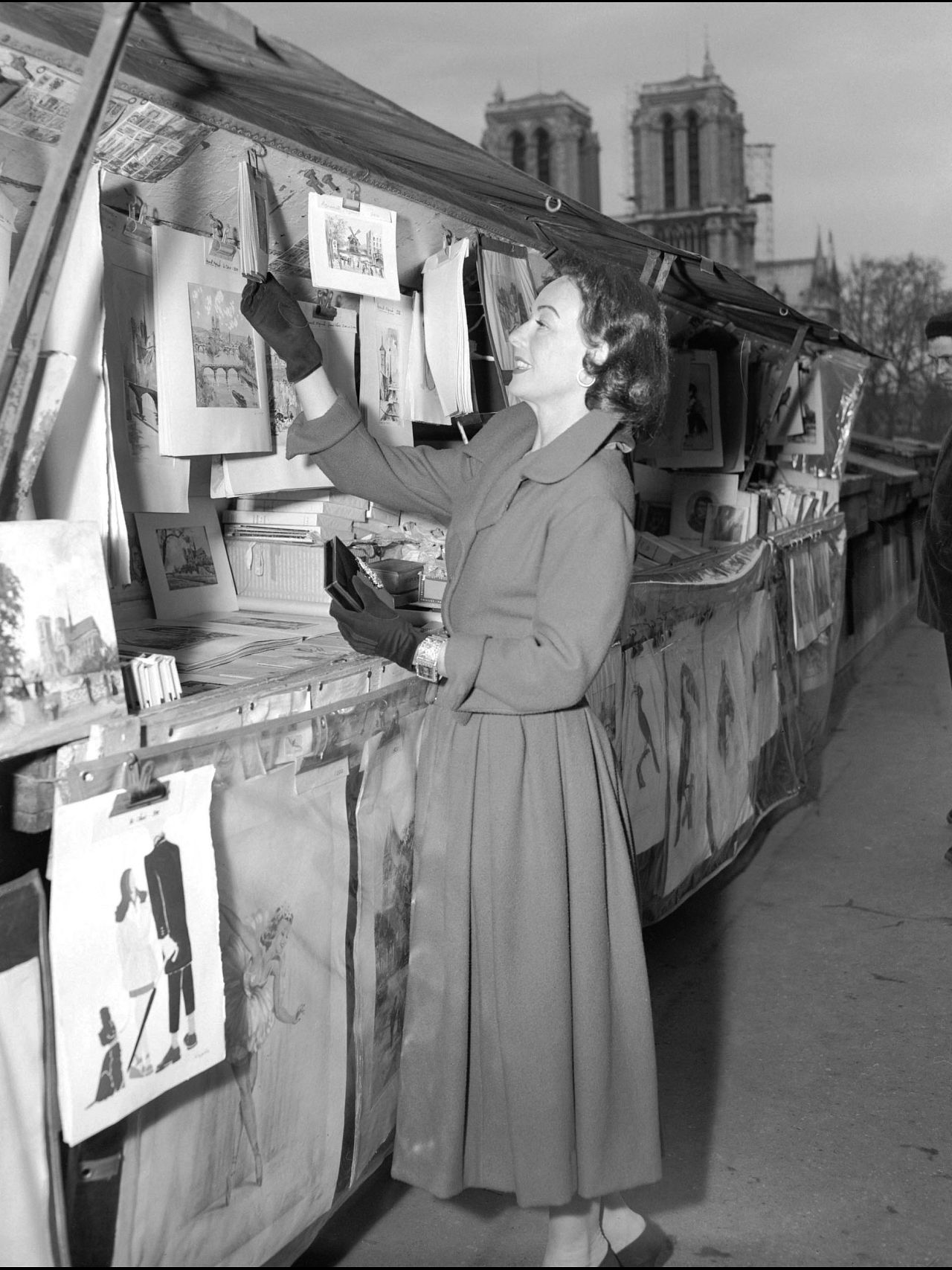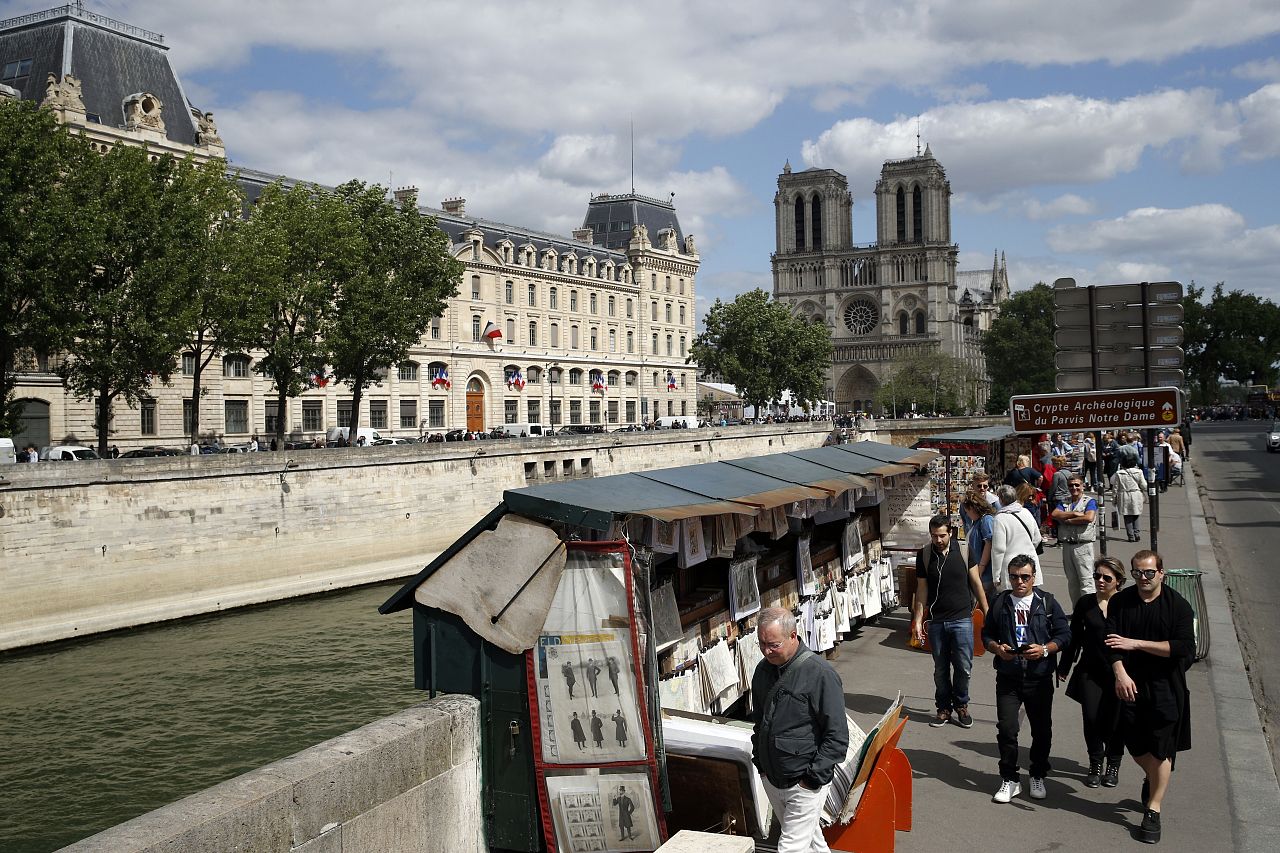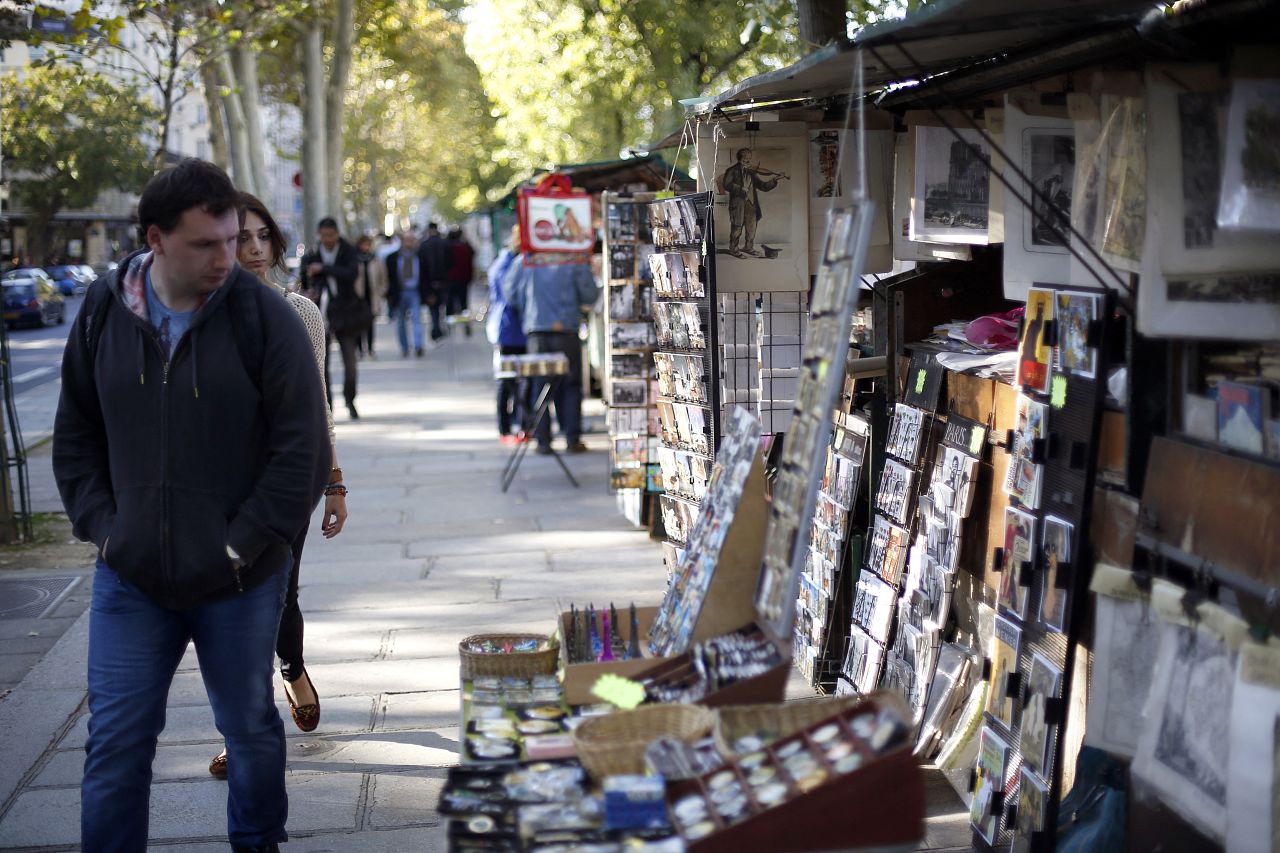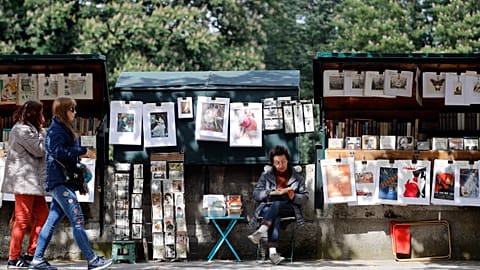The 2024 Paris Olympics' opening ceremony, a historic event taking place on the renowned River Seine instead of a traditional sports venue, holds little cause for celebration among the centuries-old riverbank booksellers.
If you've ever had the pleasure of strolling along the picturesque banks of the River Seine in Paris, you've likely encountered the charming bouquinistes – an array of second-hand book stalls.
 ADVERTISEMENT
ADVERTISEMENT
 ADVERTISEMENT
ADVERTISEMENT
This timeless tradition, which makes up the largest open-air book market in Europe, carries with it centuries of history and plays an indispensable role in the city's literary and cultural heritage.
However, an impending challenge looms large as Parisian authorities are planning to dismantle and relocate approximately 570 of these cherished stalls, comprising a significant 60% of their total presence along the riverbanks, ahead of the opening ceremony of Olympic Games next year.
But the booksellers are raising their voice in protest. They argue the move threatens to erase a symbol of the city and could cause irreparable damage to the traditional dark age-old green boxes.
A short history of bouquinistes
The tradition of selling secondhand books along the Seine River traces its roots to the 16th century, when traveling booksellers would journey from town to town and establish stalls along the riverbanks.
In 1649, an initial decree prohibited the sale of books near the Pont-Neuf, and in 1721, another ordinance introduced the possibility of imprisonment for those involved in such displays.
Subsequently, the law was eventually rescinded, and from 1859 onward, bouquinistes have been granted the right to vend their books and various wares from designated and fixed locations along the river.
The term "bouquiniste" made its debut in 1762 within the pages of the Dictionnaire de l’Académie française, initially signifying a "bookseller." It derives from the Flemish “boekin”, or “little book".
The green wooden stalls that are now synonymous with Parisian bouquinistes started to appear in the 19th century and have grown to be one of the most iconic symbols of the city.
Olympic Games dispute
The city of Paris has vowed to deliver an extraordinary grand opening on 26 July next year which is expected to draw about 600,000 spectators.
As a result, the Paris police prefecture has ordered the removal a day before the ceremony of 570 “stationary boxes” - street stands out of which booksellers have operated for decades on the quays of the Seine.
Citing security concerns, the prefecture fears that the boxes could be used to conceal explosive devices during the opening ceremony, which will see the parade of over 10,500 athletes from 206 delegations along the river as hundreds of thousands of spectators watch on.
However, a number of the traditionally dark-green boxes have not been moved for decades, some for more than a century, and booksellers denounce the prefecture’s decision.
They also worry that the city would cause irrecoverable damage to the age-old boxes by removing them.
“We are a symbol of Paris,” said Jérôme Callais, who’s been selling books on the quayside since the 90s and who heads the Cultural Association of Booksellers of Paris, which advocates for the safeguarding of the boxes.
“It’s as if the prefecture decided that the Eiffel Tower was too high and that the third and second floors had to be removed because they came within the scope of the cameras during the ceremony.”
“We agree that we will not move,” added Callais. “Yes, we can have a conversation, but it’s out of the question to touch our boxes.”
Feasibility tests
Pending the issuance of an official decree, "the police prefect has given his approval" to allow for "tests on three or four boxes of different types" to assess the feasibility of the relocation and potentially revise the list of boxes to be moved, as explained by the City of Paris, the book vendors, and the Paris prefecture following a tripartite meeting.
This gathering primarily served to "reestablish necessary dialogue," according to Pierre Rabadan, the deputy in charge of the Olympic Games, who emphasised the city's commitment to the book vendors and its willingness to engage in dialogue.
The Mayor of the 5th arrondissement, Laurence Berthout (Horizons), expressed her frustration with the city's slow procedures and requested that "expert service providers" be involved alongside municipal employees in conducting the tests.
As the city grapples with this clash between tradition and modernity, the fate of the bouquinistes still hangs in the balance.














